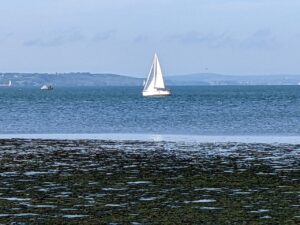It was concerning to read about the quantity of pharma drugs in rivers today. This article considers the consequences and alternatives.

Back in February The Week published the following short article:
Pharmaceutical pollution is contaminating the rivers on every continent, a major study has shown. Scientists at the University of York measured the levels of 61 active pharmaceutical ingredients (APIs) in 258 rivers around the world, including the Thames and the Amazon.
Just two areas had unpolluted waters: Iceland and a part of Venezuala whose indigenous inhabitants don’t use modern medicine. The most common APIs were an anti-epileptic drug called carbamazine and the diabetes drug Metformin, along with paracetamol, antibiotics and caffeine.
Potentially toxic levels of drugs were in a quarter of the sites, and the highest being in low-to-middle income countries such as India and Nigeria – possibly because their populations have encough money to by drugs but may live in areas without good sewage infrastructure.
The most contaminated site in the UK was the River Clyde in Glasgow.
The study, published in the journal Procedings of the National Academy of Sciences, warned that pharmaceutical pollution poses a risk to wildlife, and could also contribute more to antimicrobial resistance in humans.
The Week 26th Feb 2022
Previously on a BBC science programme I heard that the equivalent of 200 pills of Metformin pass under the bridges of the Thames every hour. Even the apparently pristine River Dee in Royal Deeside carries a significant pharmaceutical burden as this report shows. Hopefully the famous Deeside Water – highly regarded for its purity – is sourced well upstream!
The NHS Health Survey for England 2016 states that nearly half of adults had taken one prescribed medicine in the last week and 24 percent had taken three or more. The total cost at list price of prescriptions dispensed in the community in 2016 was just short of £10 billion. It is not an improving situation.
None doubt the value of medicines, but health impact both on the individual and the enviromnment of long-term use is a matter worthy of discussion.
For the first time since school days I read again Aldous Huxley’s dystopian novel Brave New World written in the 1930s. His vision was one where the highs and lows of human existence were under the control of a world state. With remarkable prescience Huxley foresaw the path we are on today. Elsewhere he remarked, “Medical science has made such tremendous progress that there is hardly a healthy human left”. I dare say there is a degree of overstatement here, but he had a point nonetheless.
It is a subject I indirectly blogged on previously
What is health? That is the question. During the first lockdown of the pandemic I cycled out into the New Forest and visited a couple of Churchyards. I was struck by the longevity even in an age of no medical care.
It made me think about the late Jan de Vries, a remarkable naturopath who ran a clinic on the west coast of Scotland until his death in 2015. He wrote many books amongst them 10 Golden Rules for Good Health. Attention to these basic principles would do much to reduce the burden on the NHS not to mention the individual.
I do not underestimate the challenge: a very rural 19th century New Forest is very different from modern city life.
Homeopathy, osteopathy, naturopathy and other forms of so-called Complementary and Alternative Medicine (CAM) all seek to maintain the human organism in balance.
They are not always quick fixes. The saying “a stich in time saves nine” is very true – the longer things are our of balance the longer it takes to correct.
Sadly, CAM has been marginalised in the health service. Some argue that such approaches do not work and waste money. Yet, the long term cost of the current medical model is problematic.
Time for a rethink?